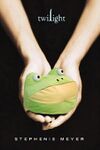- Portals
- The Current Year
- ED in the News
- Admins
- Help ED Rebuild
- Archive
- ED Bookmarklet
- Donate Bitcoin
Contact an admin on Discord or EDF if you want an account. Also fuck bots.
Chekhov's Gun: Difference between revisions
imported>The PolishPrince |
imported>The PolishPrince |
(No difference)
| |
Latest revision as of 07:46, 18 February 2023



Chechov's Gun is a principal in literature and writing that states that if an element is introduced to a story then it must be used or else the audience, or reader, will feel cheated or become disapointed in the story, feeling that they were lied to, because they built up some expectations around the element.
This rule gets its name from some letters Anton Chekhov wrote to Aleksandr Semenovich Lazarev critiquing a play of his. In one letter he told a Aleksandr to remove everything from the scenery that is not relevant to the story. In the letter, Chekhov told Aleksandr that the gun he has hanging over the door on stage makes a false promise to the audience. The audience, Chekhov said, will assume there is a reason for its being there and it will be used to develop the story in some way.
Chekhov finished by saying that "You should not introduce an element to a story unless it is going to help resolve or move the plot forward. If you start a play with a Gun on a table, then one of the characters must An hero before the end of the first act."
Applications Of Chekhov's Gun In Writing
The Couple


If a Man and a Woman spend considerable time together in a story then they must have sex or get together as a couple.
Some examples:
- In "Can't Hardly Wait" Kenny and Denise have to Screw because they were trapped in a bathroom all night.
- In The Empire Strikes Back, Han and Leah get together because they are alone together for 75% of the movie and the only person that can throw a Cockblock is a robot that can be conveniently shut off.
- in Evangelion, Shinji is the first boy that Asuka is introduced to that is her age which is why she pines for his pathetic ass. Some people have suggested that the reason why fans of Evangelion hate Shinji so much is because Evangelion ignores Chekhov's Gun and the show ends with him never manning up and painting a Hawaiian map on either Asuka or Rei's ass. According to literary experts, "The reason you feel dissapointed in Shinji is because you are disapointed by the false promise the story made when it offered up potential couples and didn't pay off."
This is also the reason why, in the Evangelion movies, Shinji actually ends up with a girl - Mari.
- In Robotech, Rick is introduced to the big titted, slant eyed bimbo Min Mei and the flat chested, can bounce a quarter off her well arobasized ass Lisa in the first 10 minutes. This show also follows another rule, "If they fight, then they'll fuck." Because Rick and Lisa spend so much of the early episodes fighting and hating each other, the audience will want there to be something between them."
- In Doctor Who, the first girl that the Doctor meets, in a new story arc, will become his companion but the Doctor won't Sexor them because he doesn't like girls. The first girl the Ninth Doctor met was Rose. When Rose leaves, Donna Noble teleports into the TARDIS OF THE TENTH Doctor. When Martha becomes his companion, the episode begins with the Dr walking up to her and giving her his tie. Also, as Chekhov's Gun states, the tie serves a purpose and is explained at the end of the episode because it had been introduced at the beginning.
It Will All Make Sense Later

In this version of Chekhov's Gun, an item of some sort is given to the character or is revealed by them. When the character takes possession of the item it seems almost arbitrary and unimportant and the character might even suggest that it is a waste of their time or even a worthless piece of Shit. As the story moves on, the importance of the object will become apparent when it conviently resolves a problem for the character. Some people refer to this rule as James Bond's gadgets because, as the gadget is given to him early in the movie, you know by experience that it will be used later. There is also a Deus Ex Machina version of this rule that is named for the campy, 1960s Batman series. If the item is absolutely unbelievable and feels as though it was only made up to solve an unresolavble problem it is called Shark Repellant.
- In "Spirited Away" when Chihiro reads the card that came with the bouquet that her classmates gave her as a thank you for finally taking their advice and leaving, the first word spoken is her name. It's not until Yubaba hires Chihiro, changes Chihiro's name to Sen and puts her to work at her bath house either giving happy endings to all the rich customers with a Japanese School girl fetish or as a serving plate for sushi rolls that it's discovered that Yubaba's control lies in that she takes possesion of a person by taking possession of their real name. When Haku gives Sen her street clothes back to her, she finds the card from the bouquet in them and remembers that her name is actually Chihiro.
The Protagonist Must Win

People do not want to invest time and emotion into a movie or play where they'll spend two hours rooting for the lovable loser to triumph only to watch the characters represent their life in its entirety and completely fail. There's a simple rule, "People only give a fuck about Cinderella because she was able to go to the ball."
- Cool Runnings is a great example of this rule. Even though people knew the ending going in and how the Jamaican Bobsled Team would crash and burn harder than a White trash, trailor park meth head taking college level calculous people still expected them to win and were dissapointed when they wrecked. People want the underdog to win. This is why "Dodgeball: A True Underdog Story" has the ending it does with ✡Ben Stiller✡ making fun of movie going audiences. People don't want to go to a movie and pay $20 to watch a group of pot smoking, underdog Rastas embarrass themselves and their families for generations to come by hitting an ice-wall at 80mph. Audiences want movies like Miracle where the underdog, 1980 US Olympic Hockey Team comes out of no-where and whips the Shit out of the heavily favored Russian team.
See Also
|
Chekhov's Gun is part of a series on Visit the Television Portal for complete coverage. |
|
Chekhov's Gun is part of a series on 
|
Books 300 • Beowulf • Do You Want To Play With My Balls • Fifty Shades of Grey • Fight Club • Harry Potter • Inheritance • Latawnya • Lolita • Lord of the Rings • Mein Kampf • Narnia • Necronomicon • Redwall • The Bible • The Book of Mormon • The Greek Semen • The Hitchhiker's Guide to the Galaxy • The Maze Runner • The Turner Diaries • The Well-Cultured Anonymous • Time Magazine • Twilight • V for Vendetta • Watchmen • Where's Waldo? |
|---|---|
|
Authors Alan Moore • Ambrose Bierce • Anne Frank • Anne Rice • Ayn Rand • Charles Bukowski • Dan Brown • David Icke • Dr. Seuss • Edgar Allen Poe • Emilie Autumn • Geoffrey Leonard • Gloria Tesch • H.P. Lovecraft • Hunter S. Thompson • Kenneth Eng • Kevin Smith • J.K. Rowling • L. Ron Hubbard • Michelle Belanger • Neil Gaiman • Noam Chomsky • Patrick S. Tomlinson • Prince Jeremy • Brian Jacques • Richard Dawkins • Sylvia Plath | |
|
See Also Big Brother • Book • Bookchan • Bookz • Chekhov's Gun • Culture • Deus Ex Machina • Grammar Nazi • Language • Literature • Lithursday • Pennywise • Poetry • Public Library • Read a book • TV Tropes • Visual Novels • |


